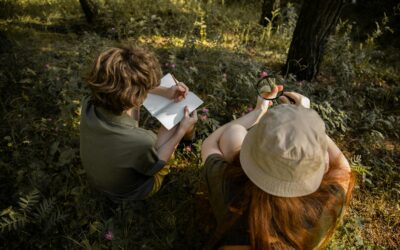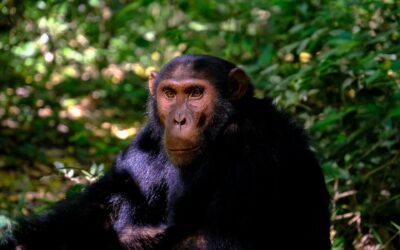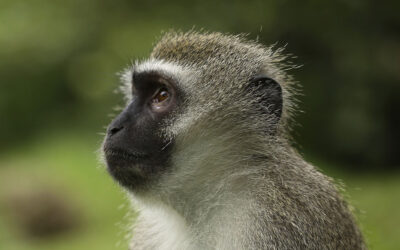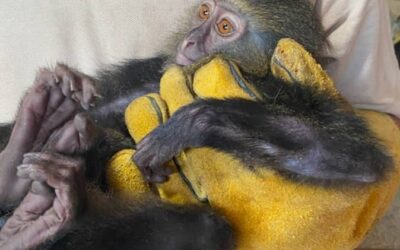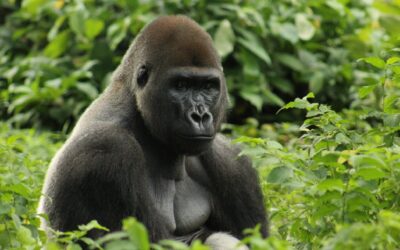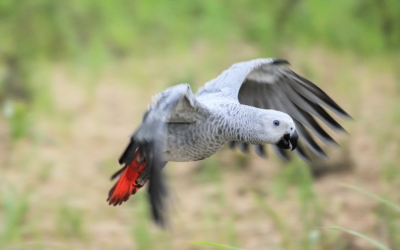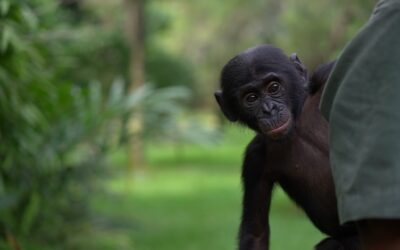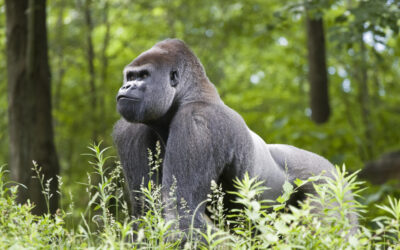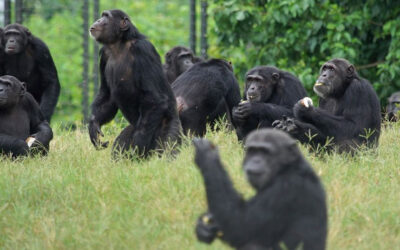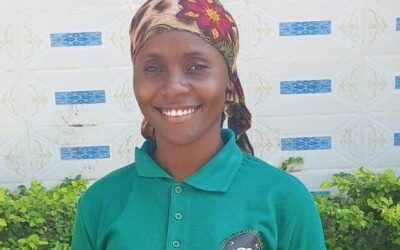We All Get By With a Little Help from Our Friends
It took a human to show Nina how to care for her new son.
By Natasha Tworoski
When humans prepare to have their first baby, it can be a nerve-wracking time filled with uncertainty. Fortunately, there are countless resources that help us prepare: classes, books, websites and most importantly, tips from family and friends. It turns out that there’s a learning curve for chimpanzees raising their first babies, too! A young chimp named Nina recently had to rely on a little help from her sanctuary caregivers to help her through this major life event.
In the wild, chimpanzee social groups are comprised of multiple males and females. Since the Jane Goodall Institute – South Africa’s Chimpanzee Sanctuary, also known as Chimp Eden, has already rescued as many orphaned chimpanzees as they have space for, allowing them to breed would eventually make the wildlife center pretty crowded. To prevent this, but also to allow the chimpanzees to live in normal social groups with males and females together, the female chimpanzees at the sanctuary receive a contraceptive implant – the same kind human women use!
Recently, one of the adult female chimpanzees, Nina, started displaying unusual behavior, such as drinking excessive water and having low energy. Suspecting kidney failure, the veterinarians anesthetized her to perform a physical examination. Feeling an abdominal lump, they had growing concerns that her issue could be a tumor. Fortunately, additional tests revealed the tumor was in fact a baby on the way! Like in humans, contraception is not a 100% guarantee of protection against pregnancy. At only 9 years old, Nina was also pretty young to be pregnant. Most wild chimpanzees won’t have their first baby until they are 12-15 years old.
Since Nina had grown up in a sanctuary where older females were not having babies, she hadn’t had opportunities to learn how to be a mother through observation. When her male infant, Thabu, arrived, Nina seemed confused and overwhelmed. She didn’t even know how to carry him properly, and she sometimes carried him upside down! Of most concern was that she didn’t breastfeed him during his first four days of life.
Staff at Chimp Eden immediately began trying different methods to teach Nina how breastfeeding works. This started with showing a video of a chimpanzee breastfeeding, Unfortunately, Nina showed more interest in wanting to play with the ipad than watching the video.
Next, using a chimpanzee toy, they demonstrated to Nina how to breastfeed, but it seemed to scare her more than anything, possibly her misinterpreting the stuffed toy as a dead animal. How could they teach Nina?
Finally, a woman who lived near the sanctuary that had a baby of her own came to demonstrate to Nina how to breastfeed an infant. It worked! After one look, Nina successfully began breastfeeding little Thabu. Once staff felt confident that both Nina and Thabu were healthy, they were reintroduced to their social group, where Thabu’s new family immediately showed adoration and affection for this lucky “accident.”
Thanks to Jana Swart of Chimp Eden for sharing this beautiful story with PASA and thanks to all the staff at Chimp Eden for what they do for chimpanzees, even when one comes as an extra surprise!
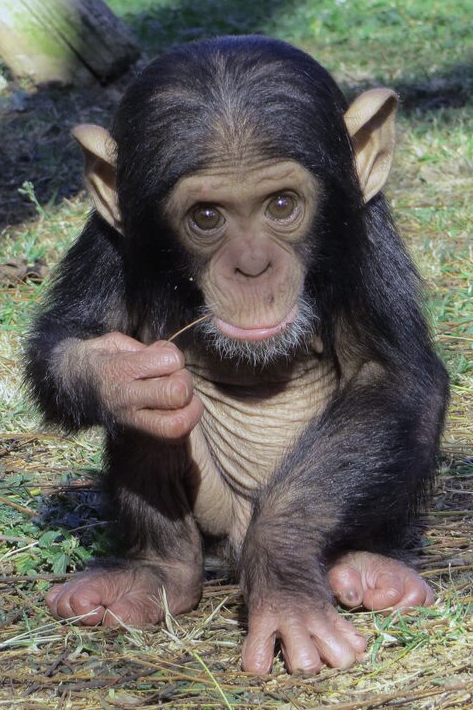
When Thabu was born, Nina didn’t know how to feed, care for or even carry him. She sometimes carried him upside down.
Once Thabu’s mother learned how to breastfeed, the infant thrived.
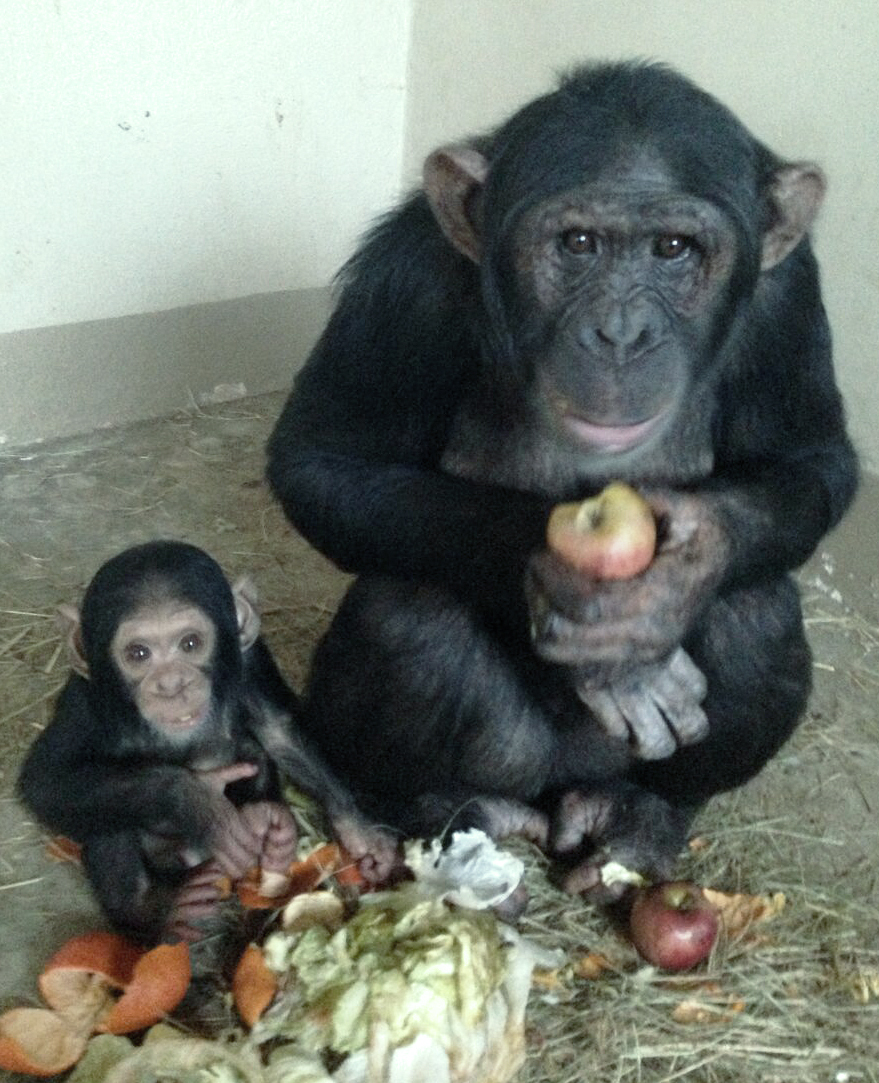
Next Posts
5 Summer Activities to Foster Conservation Education with Young Children
Here are 5 fun and educational activities that promote conservation awareness and environmental responsibility.
PASA and the QATO Foundation Partner to Protect Chimpanzees in DRC
PASA and its member J.A.C.K. Sanctuary partner with the QATO Foundation to create a bold new island sanctuary for up to 120 rescued chimpanzees in the DRC.
Trophy Hunting Myths Debunked
NGOs tackle misinformation about trophy hunting spread by the hunting lobby.
Largest Seizure of Monkeys in Africa Welcomed to J.A.C.K. Sanctuary in the Democratic Republic of Congo
Trafficking of African primates from Africa to Asia was thwarted with confiscated animals repatriated and sent to an accredited PASA member sanctuary.
5 Ways to Help Save Gorillas
Anyone can have an impact on gorilla conservation through simple actions.
Celebrate World Parrot Day with PASA!
This World Parrot Day, we are celebrating four of our amazing member sanctuaries that offer a second chance to rescued parrots!
What is an Endangered Species?
This article explains what it means to be “endangered” and explores how human activities can threaten species. It also highlights how Pan African Sanctuary Alliance (PASA) member centers rescue, rehabilitate, and conserve endangered primates and their habitats.
Celebrate 23 Years of PASA in 2023
PASA turns 23! It’s 2023 and we’re asking you to help us celebrate our 23 member sanctuaries and our 23 years of protecting primates. To mark this day, we are launching our Primates Forever Campaign to ensure magnificent great apes and monkeys remain wild and protected.
Viruses in Sanctuary Chimpanzees Across Africa
New research finds that sanctuary chimpanzees are infected with viruses previously found in wild chimpanzees. Additionally, it suggests that, like in the wild, sanctuaries experience reverse zoonotic respiratory virus transmission.
Women in Conservation: Two Wildlife Heroes in West Africa
This International Women’s Day, celebrate the dedication and achievements of two women working to protect wildlife and inspire the next generation in West Africa.

